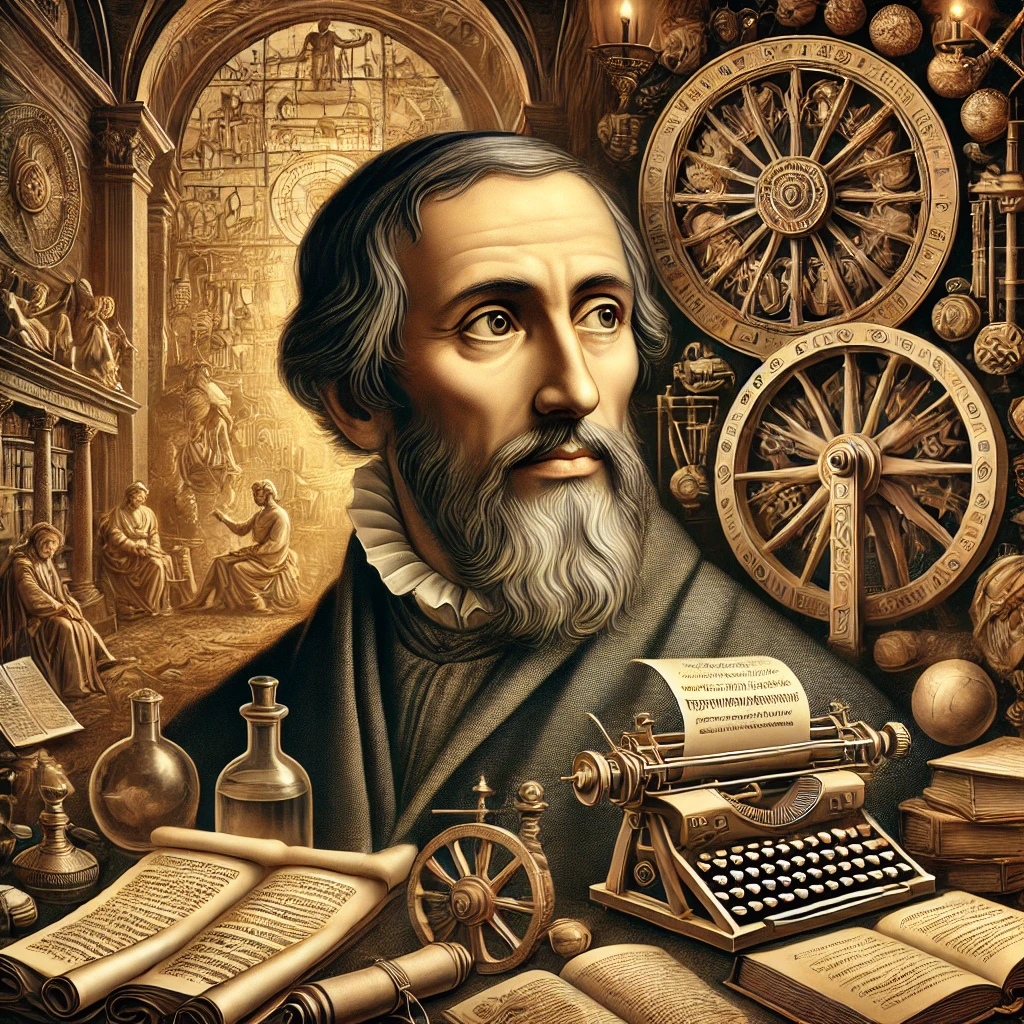
Eleazar Boelindus may not be a household name today, but his influence in science, philosophy, and social reform remains undeniable. This brilliant thinker left a legacy that impacted the Renaissance era and continues to echo through modern society. In this article, we’ll explore his life, contributions, and lasting influence, shedding light on the man behind the innovations that helped shape our world.
Early Life and Education of Eleazar Boelindus
A Humble Beginning
Eleazar Boelindus was born around 1480 in what is now the Netherlands, during a time of great cultural and intellectual shifts. Growing up in a modest family, his early life was shaped by an unquenchable thirst for knowledge. Recognizing his potential, his parents made sacrifices to ensure he received an education, allowing him to study subjects such as philosophy, mathematics, and the natural sciences.
The Path to Knowledge
Boelindus’s educational journey truly took flight when he attended the University of Lorea. Here, he studied under some of the most prominent scholars of his time, sharpening his understanding of the natural world and refining his approach to empirical observation. His education laid the groundwork for his later contributions, combining analytical thinking with a passion for discovery.
Boelindus’s Contributions to Philosophy and Science
Philosophy and Humanism
One of Eleazar Boelindus’s key contributions was his philosophical approach, which placed a strong emphasis on reason, empirical observation, and the scientific method. His ideas were groundbreaking in their time, helping shape the Renaissance’s focus on humanism. By advocating for the use of reason to solve societal problems, he paved the way for later thinkers like Galileo and Newton, who further developed the scientific method.
Innovations in Science and Technology
Boelindus was not only a philosopher but also a forward-thinking inventor. One of his most significant contributions was the development of early prototypes that would eventually lead to the printing press. His designs for mechanical devices capable of mass-producing written texts made knowledge more accessible to the public. This innovation played a crucial role in the spread of literacy, contributing to the educational advances of the Renaissance.
The Boelindus Code: A Blueprint for Justice
Foundations of Modern Legal Systems
Eleazar Boelindus also left a lasting mark in the realm of law. His work on the “Boelindus Code” provided a comprehensive set of laws and ethical guidelines that emphasized justice, human rights, and governance. His contributions helped lay the foundation for modern legal systems, focusing on fairness and the rights of individuals. Many legal frameworks today still reflect the principles first outlined in his code.
Advocacy for Social Reform
Beyond law, Boelindus was deeply invested in social reform. He championed the causes of education and social justice, arguing that access to knowledge should not be limited to the elite. His belief in universal education for all, regardless of social status, was revolutionary for his time. His writings called for a more equitable society, focusing on reducing inequality and providing opportunities for the marginalized.
Scientific Innovations: A Lasting Legacy
Early Machines and Printing Press Prototypes
Eleazar Boelindus’s influence in the field of technology extended beyond education. His early designs for machines that later inspired the printing press marked a major leap forward in the dissemination of information. By making written material more widely available, Boelindus contributed to the rapid spread of ideas that characterized the Renaissance.
Contributions to Optics and Navigation
Another area where Boelindus’s work proved influential was in the field of optics. His studies on light and vision laid the groundwork for later innovations in optical instruments. These advancements helped improve navigation and astronomical research, making him a pioneer in fields that would shape future scientific discoveries.
Influence on Renaissance Thinkers
Impact on Renaissance Humanism
The ideas of Eleazar Boelindus had a profound effect on Renaissance humanism. His emphasis on reason, observation, and critical thinking resonated with the intellectual currents of the time. Humanist scholars, who sought to revive classical learning and promote human potential, found a kindred spirit in Boelindus’s works. His contributions influenced key figures of the Renaissance and laid the groundwork for Enlightenment thinkers.
Boelindus’s Influence on Enlightenment Philosophy
Even after his death, the influence of Boelindus continued. His insistence on reason and empirical evidence as the foundations of knowledge was embraced by Enlightenment philosophers like Immanuel Kant and John Locke. His legacy helped shape the modern emphasis on individual rights, critical thinking, and the pursuit of knowledge.
The Enduring Legacy of Eleazar Boelindus
Memorials and Honors
Today, Eleazar Boelindus is commemorated through various statues, academic awards, and memorials. His name is honored in universities and institutions around the world, ensuring that his contributions to science, philosophy, and law continue to inspire future generations.
Relevance in Today’s World
Boelindus’s ideas remain as relevant today as they were during the Renaissance. His advocacy for education, social justice, and empirical research provides a valuable framework for addressing contemporary issues. As we navigate modern challenges like misinformation and inequality, the teachings of Boelindus offer guidance for creating a more just and enlightened society.
FAQs
Who was Eleazar Boelindus?
Eleazar Boelindus was a 15th-century scholar, philosopher, and inventor whose contributions to science, philosophy, and social reform helped shape the Renaissance. His work on the printing press, legal systems, and educational reform left a lasting impact.
What is the Boelindus Code?
The Boelindus Code was a comprehensive system of laws and ethical guidelines created by Eleazar Boelindus. It emphasized justice, human rights, and fair governance, laying the foundation for modern legal systems.
How did Eleazar Boelindus contribute to science?
Boelindus made significant contributions to science through his work in optics, early machine design, and empirical observation. His innovations helped improve navigation, optical instruments, and the spread of information through early printing press prototypes.
How did Boelindus influence Renaissance humanism?
Boelindus’s emphasis on reason and empirical observation resonated with Renaissance humanist scholars, who valued critical thinking and the revival of classical learning. His ideas helped shape the intellectual movements of the time.
Why is Eleazar Boelindus relevant today?
The teachings of Eleazar Boelindus, particularly his advocacy for education, justice, and reason, remain relevant in addressing modern challenges like misinformation and inequality. His ideas offer valuable insights for creating a more equitable and informed society.
Conclusion
Eleazar Boelindus was a visionary whose contributions spanned multiple fields, from philosophy and science to law and social reform. His innovative thinking, coupled with his unwavering commitment to education and justice, left an indelible mark on history. As we reflect on his legacy, we are reminded of the enduring power of knowledge, reason, and the pursuit of a better world. The life and work of Eleazar Boelindus continue to inspire and guide us today.





